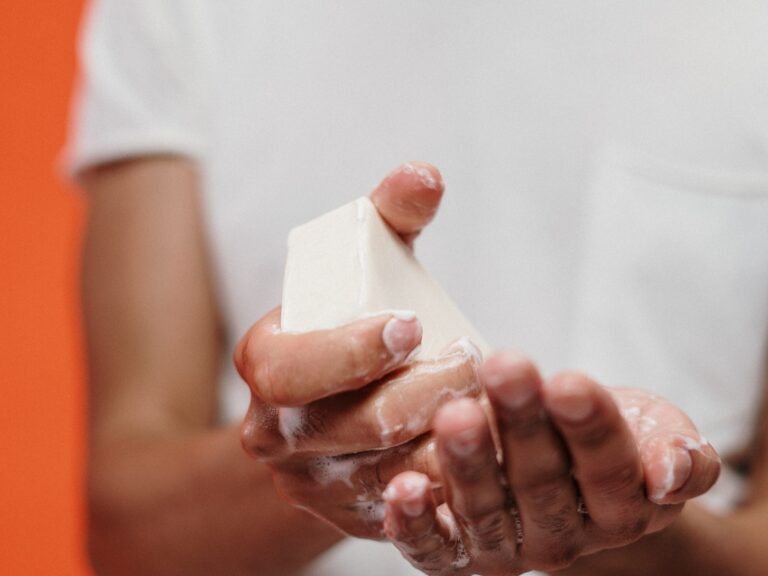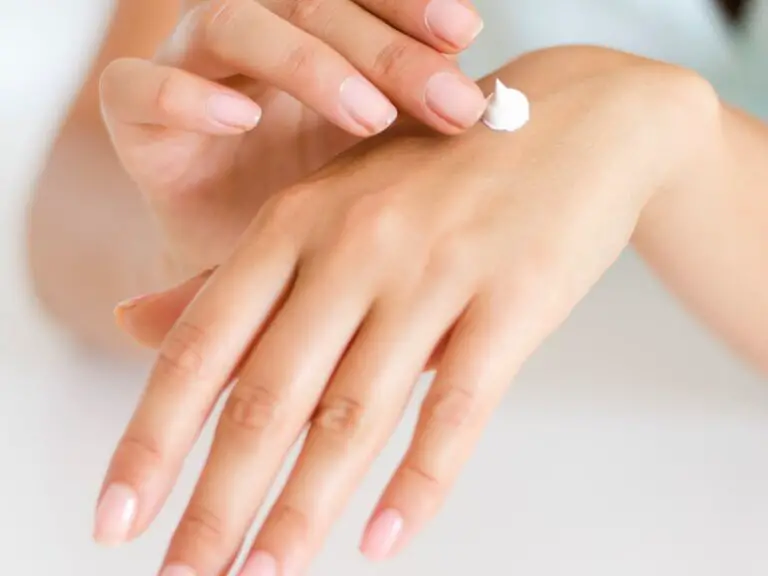Are Grapes Good for Acne? Exploring the Truth
Medically Reviewed by;
Dr. Kashif
General Physician
Senior Medical Writer
Are grapes the best way to get rid of acne? Many people have tried this juicy fruit as a possible way to get clear, healthy skin.
But can grapes do what they say they can?
In this piece, we’ll look into the truth behind the grape-acne link and figure out what’s true and what’s not. Acne can be frustrating and make people feel bad about themselves. Grapes have been touted as a natural way to fight acne and make your skin healthier because they have anti-inflammatory and antioxidant qualities.
What does science say about it, though?
Join us as we look into how grapes might help pimples and discover the truth behind this common beauty myth. Whether you’re interested in skincare or just want to learn more about how natural remedies work. This article will provide information that will assist you in making informed decisions regarding your hygiene regimen.
Table of Contents
Common Misconceptions about Food and Acne
Regarding the relationship between food and acne, numerous misconceptions exist. Some people think eating greasy or sugary foods can cause acne, while others think certain foods can help clear acne. It’s important to know the difference between fact and fiction and to realize that acne is a complicated skin disease caused by many things, such as genes, hormones, and lifestyle.
Even though diet affects the health of your face as a whole, there isn’t much scientific proof that certain foods directly cause or cure acne. But a healthy diet with many nutrient-rich foods can help your skin, making breakouts less severe and common. Let’s discuss what grapes are good for you and how they can fit into a healthy diet.

Nutritional Value of Grapes
Grapes are tasty and full of important nutrients for your health. They have a lot of vitamins C and K and minerals like copper and potassium. Grapes are also an excellent source of fiber, which aids in digestion and maintains a healthy digestive tract.
Resveratrol is a powerful antioxidant that has been shown to reduce inflammation. It is found in the skin of grapes. This antioxidant might help protect the skin from damage produced by free radicals and the environment, making it less likely that acne-related inflammation will occur. But it’s important to remember that the amount of resveratrol in grapes isn’t very high, and more study is needed to figure out how it affects acne directly.
Antioxidants in Grapes and their Benefits for Skin
Grapes have more antioxidants than just resveratrol, such as flavonoids and anthocyanins. These chemicals help protect the skin from oxidative stress, which can lead to skin harm and aging before its time. By eliminating free radicals, antioxidants make skin healthier and may help fade acne spots and other skin problems.
Also, vitamins have been shown to help reduce inflammation, which can help people with acne-prone skin. Acne is often linked to chronic inflammation; lowering inflammation can help ease symptoms and stop new breakouts. Even though grapes are not a cure-all for acne, their antioxidants may enhance skin health and reduce acne-related inflammation.
The impact of Grapes on Acne-Prone Skin
Even though grapes might be good for your skin, it’s important to think about how they might affect acne-prone skin. Everyone has different skin, so what works for one person might not work for another. Some people may find that eating grapes or grape goods worsens their acne, while others may see their skin condition improving.
If you have an acne-prone face, it’s important to consider how certain foods, like grapes, affect your body. Keep a food journal and write down if your skin changes after eating grapes or grape goods. This will help you determine whether grapes help your acne or worsen it.
Other Potential Benefits of Grapes for Skin Health
Grapes may help with acne, but they are also good for your skin in other ways. As has already been mentioned, antioxidants in grapes prevent free radical damage, leading to a youthful appearance. The high amount of water in grapes also helps keep the skin hydrated and soft.
Also, grapes are a natural source of alpha hydroxy acids (AHAs), often used to exfoliate and brighten the skin in beauty products. AHAs improve the appearance of the skin by removing dead cells, unblocking pores, and speeding up the skin’s natural renewal process. Adding grapes to your skincare routine, internally and externally, may help you in more ways than just getting rid of acne.

How to use Grapes for Maximum Skin Benefits
There are different ways to add grapes to your diet to get the possible skin benefits of grapes. Fresh grapes are a delicious and nutritious snack, but they can also be added to smoothies, salads, and yogurt for a flavor and nutrient increase. Grapes can also be used to make grape juice at home or added to recipes for sweets, sauces, and marinades.
Aim to eat a range of colorful fruits, vegetables, and grapes to get the most benefits for your skin. This will ensure that the skin gets a wide range of nutrients for its general health. Remember that a balanced diet is the most important thing and that no one food or ingredient can ensure clear skin. It’s important to take a balanced approach to skincare and consider things like stress, sleep, and your skincare routine that may affect acne.
Other Natural Remedies for Acne
Grapes might be good for skin with acne, but they aren’t the only natural treatment worth looking into. Many other natural products and treatments have been said to help acne. These include green tea, aloe vera, witch hazel, and tea tree oil.
Natural treatments may work differently for different people, and what works for one person may not work for another. If you wish to incorporate natural therapies into your skincare routine, consult a dermatologist or other skincare professional who can provide you with individualized guidance depending on the state and needs of your skin.
Professional Opinions on Grapes for Acne
Even though there isn’t a lot of scientific study on the direct link between grapes and acne, many skin care experts agree that grapes may be good for overall skin health. Grapes may help improve the state of your skin and reduce inflammation caused by acne because they contain antioxidants and anti-inflammatory properties.
But it’s important to look at health from a wide range of angles. A healthy diet, a good skincare routine, and lifestyle factors like managing stress and getting enough sleep help you get and keep clear skin. According to experts, acne can be successfully treated with a balanced diet, regular exercise, enough water, and the right skincare products.
Conclusion
Grapes may help treat acne, but they are not a cure. Grapes and acne are complicated and vary by person. Grapes may enhance skin for some but not others. If you’re considering adding grapes to your acne-fighting diet, observe your body’s response and adapt accordingly. Consult a dermatologist or skincare specialist for personalized guidance on your skin’s behavior. Clear, healthy skin requires a balanced diet, a correct skincare routine, and lifestyle variables.
Grapes may not cure acne, but their nutritional richness, antioxidant content, and potential anti-inflammatory effects make them a beneficial addition to a diet. For healthy skin, eat a variety of nutrient-rich foods, including grapes.
FAQs
Green grapes can be beneficial for acne-prone skin due to their high antioxidant content, which helps combat inflammation and oxidative stress. They also provide hydration and vitamins that promote skin health. However, individual responses may vary, so it’s best to incorporate them into a balanced diet and observe how your skin responds.
Black grapes can be good for the skin as they contain antioxidants like resveratrol, which help protect against damage from free radicals and promote healthy skin. They also provide hydration and essential nutrients that contribute to overall skin health.
Eating grapes can contribute to clearer skin due to their antioxidant content, which helps fight inflammation and oxidative stress. Additionally, grapes are hydrating and rich in vitamins and minerals that support overall skin health. However, it’s important to maintain a well-rounded diet and address any underlying factors that contribute to acne. Individual responses may vary, so it’s best to observe how your skin reacts to grape consumption and consult a healthcare professional for personalized advice.
While some people may use grape extract or grape juice topically on their face, it’s not recommended to rub whole grapes directly on your face. Grape juice or extract can be diluted and used in skincare products, as grapes contain beneficial antioxidants. However, applying whole grapes to the face may not provide the desired skincare benefits and could potentially cause irritation. It’s best to consult with a dermatologist or skincare professional for appropriate topical treatments for acne-prone skin.
Grapes can be beneficial for oily skin due to their astringent properties. The natural acids in grapes help control excess oil production and tighten pores, reducing the chances of clogged pores and acne breakouts. Additionally, grapes are rich in antioxidants, vitamins, and minerals that promote overall skin health, making them a potentially good addition to a skincare routine for oily skin types. However, individual results may vary, and it’s always recommended to consult a dermatologist for personalized skincare advice.
Disclaimer: This article is for educational purposes only, and does not substitute any medical advice. Always consult a qualified healthcare professional for personalized advice before trying new treatments or medications.

General Physician
Senior Medical Writer






